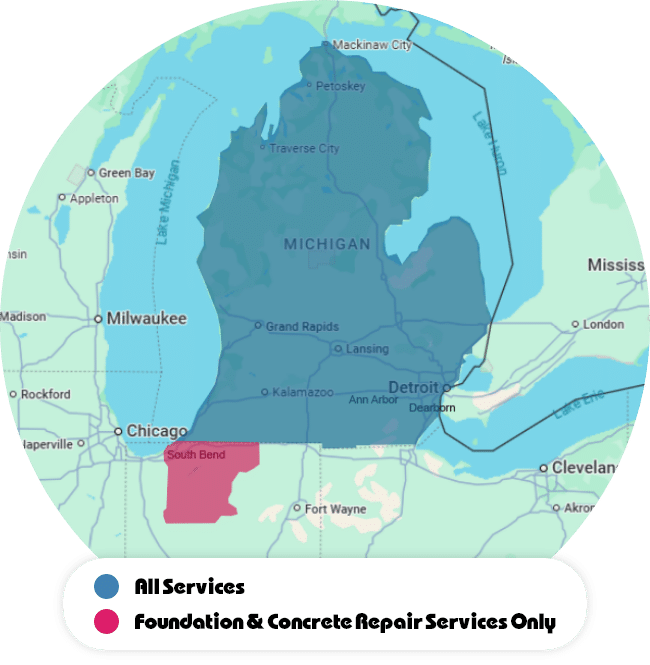The Dangers of DIY: Wall Cracks

It seems that everywhere you turn, there’s a commercial explaining how to do home repair projects yourself AT A FRACTION OF THE COST.
And for some problems, this is ok. You can spackle a hole before painting, or put in new weatherstripping around your drafty slider. But when it comes to problems in your basement, be they water or foundation-related, that fraction of the cost also provides a fraction of a solution - and could do more harm than good. This is especially the case when it comes to wall cracks, which often leak water and can cause flooding.
First, let’s talk about what you can do to try and reduce water issues in your basement.
Grading and downspouts are rarely the sole cause of basement or crawl space flooding, but they can make things worse. Adding downspout extensions can help funnel the water further away from your home, preventing it from simply soaking back into the foundation. And if you have some landscaping know-how, modifying the grading of your property to angle away from your home can help divert water as well.
As for fixes you shouldn’t attempt on your own, the most common one attempted is also one of the most dangerous: crack sealing
You can’t walk through a Home Depot without seeing cans of rubberized paint claiming that they’ll seal any crack and even make a busted rowboat seaworthy again. And maybe it can - for a minute. You can use practically anything to seal a hole for a minute. But when it comes to your basement, you need more than a minute - you need a lifetime.These rubberized paints and other such “waterproofing” paint-on products might momentarily stop the water, but thinking you’ve “solved the problem” is not only wrong, but can be dangerous.
First off, water will always win. Water has carved paths through mountains - some paint isn’t going to keep it at bay. Eventually, the water will once again start leaking in through wall cracks, and in the process can actually widen the cracks due to building pressure. So you’re back to where you started, but actually a little worse off.
Secondly, by focusing on the symptoms (leaking water) you can lose sight of the problem - namely, the crack(s) in your wall. Wall cracks can be caused by anything from normal concrete settling to a sinking slab, but no matter the cause, it’s important to have them inspected. If they’re superficial, we’ll tell you. But if they’re a result of soil pressure or foundation settling, we need to take action.
Left untreated, bowing walls and settling foundations can lead to any of the following:
- Slanted floors
- Sticking doors and windows (difficult or impossible to open/close)
- Cracks in upstairs drywall
- Sinking countertops
- Wall collapse
Pay attention to that last one; walls can only bow or slant so far before the weight of the house becomes too much and the wall gives up. We see a few of these every year; either the homeowners didn’t notice a problem, or didn’t want to deal with it, and then one day they go into the basement and are surprised to find the back garden is all over the floor, along with one of their foundation walls.
Wall cracks aren’t the end of your home as you know it; caught and repaired properly, they’re barely a blip on the radar. We have a variety of products to stabilize and straighten walls, and even a crack repair that actually keeps the water out. The only DIY involved is a phone call.









